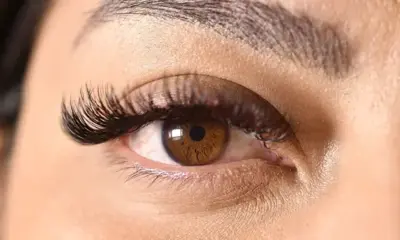Policy & Regulation
Zimbabwe tightens cosmetic regulations to eliminate “harmful ingredients”
MCAZ highlights concerns over harmful ingredients, subpar product quality, and inadequate traceability in cosmetics sold.

The Medicines Control Authority of Zimbabwe (MCAZ) is implementing stricter regulations on cosmetic products within the country as part of a comprehensive regulatory framework. In response to the need for increased oversight, the MCAZ has identified various issues, including the use of harmful ingredients, poor product quality, and inadequate traceability. As a result, Zimbabwe tightens cosmetic regulations to eliminate “harmful ingredients.”
The Medicines and Allied Substances Control (Cosmetics) Regulations aim to address MCAZ’s concerns regarding the proliferation of substandard, falsified, and potentially harmful cosmetic products in Zimbabwe. New guidelines will be established to define, register, label, and test cosmetic products, ensuring that manufacturers, importers, and distributors adhere to stringent safety and quality standards. MCAZ has emphasized that industry suppliers must submit detailed product information for evaluation and follow proper labeling and marketing practices.
The authority believes that strengthening regulations will enhance product innovation, rebuild consumer trust in the market, and enable consumers to make informed decisions about the cosmetics they apply to their skin and bodies. “The proposed cosmetics regulations are expected to be implemented soon, subject to the necessary legislative and administrative processes,” states MCAZ. The public is advised to use certain cosmetics cautiously, and stakeholders—including manufacturers, importers, retailers, and consumers—are encouraged to engage with the authorities during this critical process.
Concerns About Cosmetics
While MCAZ has not specified particular product issues, a study published in the Medical Journal of Zambia five years ago raised red flags regarding cosmetic sales practices. This research surveyed 270 women in Zimbabwe and conducted interviews with key informants from ten cosmetic sellers nationwide.
Findings revealed that “all the key informants reported selling skin-lightening cosmetics, with some of these products identified as illegal. All skin-lightening products were reportedly hoarded outside Zimbabwe.” Concerns regarding corruption and relaxed policies surrounding cosmetic regulation were raised as factors enabling the entry of illegal and potentially harmful products into the country. The prevalence of skin bleaching among participants was noted at 31.15%, with 61.40% of respondents unaware of the side effects associated with skin bleaching cosmetics.
The researchers pointed out that the MCAZ is the only regulatory body for medicines and cosmetics in Zimbabwe, criticizing its lack of action in the cosmetics market. They also connected the rise of skin bleaching in Zimbabwe to neoliberalism, suggesting that targeted health education and robust public health policies could help control access to and mitigate the adverse effects of skin bleaching products.
Economic and Health Implications
The authors of the study argued that neoliberalism promotes free-market capitalism while limiting government intervention, leading companies to “stretch boundaries to maximize profits,” potentially resulting in the use of cheap and harmful materials in products. Some skin-lightening cosmetic brands even promote health benefits in their offerings, with others misleadingly claiming to be “free from” harmful substances, which can distract consumers from scrutinizing the full list of ingredients.
A separate study published in African Health Sciences involving 260 Zimbabweans found a skin bleaching prevalence of 31.15%. Reasons for this trend included desires for smooth, healthy skin and social advantages, such as marriage prospects and job opportunities. The authors attributed the rise of skin bleaching to “deep-rooted” colorism, which the cosmetics industry has exploited.
Users of skin-lightening products reported both reversible and irreversible side effects, including skin irritations, inflammation, rashes, and other health issues. The researchers highlighted the lack of formal registration, regulation, or legislation governing skin-lightening products in Zimbabwe. They concluded that skin bleaching in the country represents a complex web of formal and informal networks, indicating a well-established commercial enterprise for local and imported products.





















